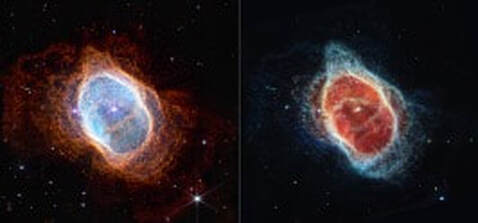August 28, 2022
Jesus and the Sabbath David Kushner Scripture: Luke 14: 1-14 The Bible is perhaps best understood as meditation literature. In brief, these texts are made to be meditated on, contemplated by Communities of Faith, and in so doing we are shaped and formed, and grow in our identity—both as communities, and as individuals. --The Gospel of Luke puts some high significance on the meaning of Sabbath for the new Christian (largely non-Jewish) community. So let’s first consider the significance of Sabbath. --What is Sabbath: rule/Law to cease from work on the “seventh” day. --Sabbath calls us to behave like God --God worked for 6 days, then rested; so we work and rest. --Because we are formed in the Image of God, we are to behave like God --so what is God like? … well that is a larger matter—perhaps which comes into better focus as we move on. --Sabbath reminds us of our contingency on God—because we are in God’s Image we depend upon God for our sustenance. --Sabbath practices the hope of an egalitarian community. It reminds us that because we are all in God’s image, the rich, the poor, even slaves and aliens, are to rest, and all be reminded they too behave like God and bear God’s image. And in the the largess of God’s blessing upon us, we extend our wealth to ensure the rest and feasting of the marginal among us—as God has done for us. --with this in mind, the Sabbath can be imagined as a time where we ritually imagine and inhabit the prophetic reality of all people together acting as God acts, regarding one another as co-inheritors of God’s image and presence in this world, enjoying together the bounty that blesses the rich and the poor, indiscriminately --Sabbath is a picture of God’s way in the world where the Last are made First, and the First/Last. --For these reasons, it was mandated as an essential part of their identity for the Community of Faith to rest from work on the Sabbath, and to enjoy the bounty of life lived together. And it is within this context that we return to Luke’s ruminations on the lord of the sabbath. --is it lawful to do the work of healing on the Sabbath? The religious leaders previously have challenged Jesus on this point before (Chapter 13), and here Jesus inverts the situation calling on them to answer. --Now we know that there are very serious laws and customs built around the tradition of honoring Sabbath, so it is no simple thing for a leader, whose identity, authority, and position are wrapped up in the maintenance of this to answer. --This is a litmus test. To answer this wrong is to risk exclusion from God’s people. Will we give the wrong answer, saying it is OK to violate Sabbath? Do we run the risk of encouraging all the people to simply do as they will—like children, or is it better and even more caring to admonish the crowds to do what is “right”? --It is worth asking ourselves what litmus tests we confront today: Can those who are more conservative or liberal than us truly worship together? Can gays and lesbians have full inclusion in the Church? --Jesus’ response is that the Law of God is not simply about Rule Keeping, it is about People Keeping. We know we honor the Law of God if our actions bring life, healing, restoration and liberation. If our insistence upon a “right” way to be results in the alienation or hurt of others, it is not born from God’s law. --Jesus behaves like God, bringing new life and healing so that another human can truly have rest upon the Sabbath. --and so we see that Luke shows us: to be like Jesus is to honor the law of God. And to honor the laws of God is to participate in the healing of this world. We recognize and restore the image of God in one another, and we discover that God’s love empowers us. --This sounds nice, and right—and it IS! But there is also a parable here. And parables have a way of catching us out. We often come to a parable feeling like we are on the side of God, and we often walk away troubled, unsure in some ways. Often we are simultaneously comforted and joyous, and also profoundly challenged by an ever higher call. --We should embrace these ambiguities and meditate upon them, allowing the ways of God to ever speak to us, teach us, and challenge us. --So Jesus here tells a parable and gives what seems to simply be wise advice. Don’t show up at a feast and assume the seat of highest honor: Just think how shameful and embarrassing it will be to be moved down the row! Rather, be wise, seek the lower seat, and then you will be honored when the host invites you close. Honestly, pretty good advice. --Have you ever been at an awards ceremony and felt convinced that the anonymous person they are describing is yourself? I have. Nearly any time anyone is going to be honored—even if I know the honor has nothing to do with me—i believe that they will call out my name, thank me for being generally awesome, and send me on my way to the great applause and admiration of everyone. Perhaps this is just me. Not so bad when that aspiration lives only in our head—but woe to me if I stand up and start walking to the podium before the announcement is made! It is much safer to remain Walter Mitty and dream my days away—So I heed Jesus’ advice on such occasions. --But on a more serious note, these Sabbath meals, like most sacrifices in the Bible, are a way of sharing with others the blessings God has given: so much that it allows us to take a whole day off from work. What better way to Honor God than to throw a big, rich expensive feast!?! and I can invite all those pretenders who think THEY’VE been blessed! So I use the feast that celebrates our common humanity, and God’s generosity, and I use that feast to esteem myself most—to make sure everyone knows I’ve been blessed more than them. Maybe I gain favor and stature. I ensure myself a nice seat when my rival throws his own feast. Suddenly this feast becomes an insidious thing; a celebration of hoarding and avarice. And I have the GALL to challenge whether Jesus’ healing is lawful? When my very actions celebrate hoarding, social posturing and self-protection, and deny the full humanity of those who suffer, and suffer from want who are near me… well. Well, what is that? --So we can see a bit of what Jesus is on about here. Good thing I know better than to seek honor for myself. Good thing I would never openly oppress another person to make my own feast grander. And good thing I would never do that in God’s name. --Well...at least not today, but maybe I will tomorrow. By wrestling with the reality that I am very much still a broken, fragile person, who still strives to gain honor, security and admiration, I may be molded into a humbler, more loving ambassador of Jesus’ love. --Jesus’ parable commends us to invite the poor, the lame, the alien to our table and let them enjoy in the goodness of God’s blessing. It seems that only here, where there can be no expectation of repayment, do we honor the Image of God. --Now if you know you will come to a party you would not be accorded honor in keeping with your person, would you even attend? Would I participate in a church where I know that those less educated, less socially well-healed, or less theologically correct might be honored more highly than I? Would I stay in a church run by fishermen? --The world would say we should seek like-minded fellows, but Jesus calls the basis of our like-mindedness to be in a loving humility. Don’t seek the honor and security of being in the “right” group; rather find your security in behaving like God, who loves and restores all Humans, and through this love helps make us whole. What of that? --Our categories of honor are perhaps different these days, and so we really must meditate upon the truths of these stories. We should allow them to challenge us, we should discuss and debate them with one another in communities of trust and faith, we should wrestle with God in the silence of our souls. ---We will often feel to have failed, or or that we are incapable of such a high calling, and just then we may feel the uplifting arms of God’s love and acceptance of us, or an opportunity to be a vessel of God’s love toward an enemy, or another who could never repay you. --It is in this vulnerability that we discover truly who we are: contingent beings, loved, fragile and formed together into a community that reflects God’s love, an alternative reality; a prophetic community that continually reminds us and the world that there is a New way; a way of being Truly Human. --Consider what is perhaps the oldest hymn of the early church, from the letter to the Philippians: “Jesus, who being in very nature God, did not consider equality with God something to be grasped. Instead, he emptied himself taking on the form of a servant, even unto death. Therefore we are called to do nothing out of selfish ambition, or vain conceit—but rather consider others before yourself. Look to others’ interests, not merely your own.” --Jesus shows us, and challenges us, what it looks like to behave like God. We do not have to constantly strive and seek position, security, and honor; we do not have to worry about always having the moral or intellectual high ground. --If we know we are made in God’s Image, and we love those near us as those who also bear God’s Image, we will fulfill God’s law, and we will experience the Sabbath rest. A Rest from so much striving and hate that is the World. --I certainly have not exhausted the truths of even this passage; together though we may go forth as contemplatives in action, meditating on the ways of Jesus’ kingdom, and bringing healing and love to a world in desperate need of a true Sabbath. --I pray that wee each bear in our hearts the challenge Jesus puts before us. Let us carry the challenge and not grow complacent; rather, regularly meditating and discovery where God’s call upon us can form into ever more loving and humble Humans: May our lives bear our God’s presence in this world.
0 Comments
August 21, 2022
God's Dream Cathy Davis Scripture: Jeremiah 1: 4-10 Luke 13: 10-17 Jeremiah - a prophet, known as the weeping prophet, whose name means God Will Uplift. We just heard the story of God coming to Jeremiah when he was just a young man, probably no more than a teenager, according to Jeremiah “the Lord came to me saying, ‘I appoint you as a prophet to the nations.’” Jeremiah was chosen by God… God told him, “Before I formed you in the womb I knew you, before you were born I set you apart.” There are other stories of chosenness in the Bible. There is Abraham and Sarah; Moses and Miriam, David, Esther, Paul, and of course, Mary – and many more. God is always choosing people. Author Father Richard Rohr says that “God’s chosenness is for the sake of communicating chosenness to everybody else!” God needs people – God needs those who are to be willing instruments – for the sake of others. For many years, here at Maple Grove, when Bill Croy was our Senior Pastor and Laurie Clark our associate pastor, Our Hands are Christ’s hands was our sort of byline. It was; Maple Grove – Our hands are Christ’s hands. It was our reminder that we are needed as willing instruments for God. Whether it inspired by the Saint Teresa of Avila’s (Ah vee lah) prayer Christ Has No Body, or not, I associate it with that and I want to read that prayer to you now… Christ has no body but yours, No hands, no feet on earth but yours, Yours are the eyes with which he looks Compassion on this world, Yours are the feet with which he walks to do good, Yours are the hands, with which he blesses all the world. Yours are the hands, yours are the feet, Yours are the eyes, you are his body. Christ has no body now but yours, No hands, no feet on earth but yours, Yours are the eyes with which he looks compassion on this world. Christ has no body now on earth but yours. Saint Teresa knew we were chosen to be the body of Christ. It’s in everyone’s job description. Jeremiah’s particular chosenness was that of prophet, and he was appointed to “uproot and tear down, to destroy and overthrow, to build and to plant.” And God assured him “I am with you.” Jeremiah was to serve the people of Israel, to help bring them back into right relationship with God. He called them out for breaking their covenant with God, he told them they weren’t living up to the Torah and they were living in violation of the Laws, that the most vulnerable people; the widows, orphans and immigrants – were being taken advantage. Jeremiah delivered the message of God’s judgment and warned them that they would suffer and be forced into exile. Even with all that said, with harsh consequences before them, Old Testament scholar and theologian, Walter Bruggeman, says that being prophetic is not to be shaming, criticizing, nagging, or scolding – it is to speak of new possibilities. A prophet’s message carries with it a message of hope and grace. Bruggeman says that prophets put visioning front and center, “they offer an alternative consciousness.” He says they are to “nurture, nourish and evoke a Yahweh consciousness.” They are sent to dismantle the dominate consciousness and to plant and raise up, an alternative one. The prophet knows, they insist, that society could be other than it is, better than it is. Prophets imagine something beyond what already is. Another way of saying it is that they share God’s dream with people. Author and pastor Brian McLaren reframes the familiar phrase God’s will be done, into God’s dream come true. Jeremiah was saying to the people of Israel …. God dreams of a better life for you, God dreams of peace for you, of justice for you, of compassion, cooperation, reconciliation, and of freedom for you. God dreams of relationship with you. When I was in college at Ohio State University, I took an art history course. During that course there was one work of art that rattled me a bit, causing me to examine my own thinking. It was a sculpture; I couldn’t locate a photo of it to tell you the name of it or the artist. But as I recall, it was made from bent and formed metal, and it was a bunk bed in what appeared to be an institutional setting and there was a figure of a person, lying on the bottom bed and there was a thought bubble above the person of what was going on in their mind as they laid there in bed. And inside the thought bubble, was the exact image of the person lying in bed. I was struck by the idea of not being able to imagine anything more than one’s current circumstances. To be sure there are times we all are unable to see alternatives, or to imagine new possibilities for our lives and for our world. And that is when we most need prophetic imagination. Of seeing God’s dream for us. In the Luke story we heard today, Jesus saw an alternative to what had always been when he knowingly broke the laws of the Sabbath and healed the woman who had been bent over for 18 years. Father Richard Rohr says that the “best criticism of the bad is the practice of the better.” Jesus practiced the better when he said to the men ready to stone the women who had been caught in an act of adultery, “Let him who is without sin be the first to throw a stone.” And when against societal taboos, Jesus had a conversation with the Samaritan woman at the well. Jesus practiced the alternative consciousness when he entered the tax-collectors house to join him for dinner and again when he touched the leper. Jesus lived a Yahweh consciousness. One in which God uplifts. In the 12th century Francis Bernardone walked away from a life focused on power, prestige, and possessions in order to live an alternative life, of simplicity, focused on God and in harmony with all creation as St. Francis of Assisi. God needs people to share God’s dream, to walk the path, to show what’s possible. God needs people who will let others know that God knows us well, and God loves us, God has good plans for us, desires and dreams for us, God calls to us, God will be with us and work with us to bring about God’s good. God wants, dreams of, desires relationship with us and one another. In chapter 29 of Jeremiah, he writes to the elders who have been carried into exile from Jerusalem to Babylon, they have been forced from a land they treasured, it’s gone and it is not coming back and he tells them, where you are now “Build houses; plant gardens, marry seek peace, and pray for Babylonians well-being.” And he messages of comfort and assurance from God saying “I know the plans I have for you, plans to take care of you, not abandon you, plans to give you the future you hope for.” Explaining what today’s world has in common with the book of Jeremiah, Walter Brueggemann said, “Ours, like the time of Jeremiah, is a time of violence, it’s a time of loss, it’s a time of bewilderment, it’s a time of fear, and I think that the book of Jeremiah gives voice to all of that, and before it finishes, it also manages to give voice to hope.” One way to help us find hope, is to be what Barbara Brown Taylor calls “detectives of Divinity.” We need imagination, to believe in the possibility of God’s dream for us. That may mean looking out into the world for signs of Yahweh consciousness and with Yahweh consciousness. Like when I heard Scarlett Lewis, the mother of 6-year-old Jesse Lewis, who was killed in the Sandy Hook school shooting, speaks and writes about Nuturing, Healing, Love – the words her son Jesse had written on the chalkboard in their home days before he died. Or when I read about more than 1,000 Norwegian Muslims forming a human shield they called a “ring of peace” to protect a Jewish place of worship in Oslo in the wake of a synagogue attack. And in London, when a neighborhood watch group called ‘Shomrin’ (Hebrew for guards) protects Muslims against hate crimes. Or when in 2017, through the support of the West Ohio Conference and Maynard Ave church, the “Welcome Home” program began and offers supportive relationships to women impacted by incarceration. Or when I found out on Friday that Ryan Van Bibber, of our AV team, has started an organization in order to provide scholarships for Columbus city school students so they have an opportunity to participate in otherwise unaffordable educational programs. Or even when one-night last week, while sitting at home, intently focused on my computer screen I received a text from one of our Maple Grove homeless friends, telling me to look up at the rainbow. Being detectives of divinity, doesn’t deny real world problems. And yet, it views the world through the lens of promise, fall, redemption and resurrection. It takes the pain and brokenness, suffers with, grieves for, and rises in love and resurrects through God’s grace. To paraphrase Bruggeman; imagination from a Christian sense, “requires great will and great intentionality and great resolve to continue to bear witness to a world that contradicts the rest of our life.” We are all chosen is to participate in the dream of God.
August 14, 2022 What if the Universe is the Body of God? Rev. Patricia Wagner Scripture: Colossians 1:15-20 Dona Nobis Pacem Bring us Peace. Amen. You know that I was at Chautauqua in New York state last month, and this week’s attack on a speaker there, Salman Rushdie, has left me quite shaken. But together with the horror, I am also moved, moved by the accounts, that, when the attack began, the whole audience seemed to rise and move toward the stage, toward the violence, and dozens of regular folks, leapt up onto the stage toward an angry man with a knife to stop him. to try bring peace. Dona nobis pacem. This morning, at this moment, thousands of all faiths have gathered there for worship in that amphitheater as they come to terms with the violence that filled that one-time Methodist Missionary retreat. Let us pause for a moment of silence with them. There is criticism for that amphitheater’s openness even if that is what the speaker preferred, but openness is part of what life and faith seems to require of us as challenging and risky as that is. My week there brought challenges to heart and mind part of a summer of great personal spiritual discovery. including encounters with wondrous teachers, and study of scripture which has brought a profound evolving of my understanding of the nature of God, creation, Jesus of Nazareth, and the Christ. Openness changes everything. Meanwhile, this summer the James Webb Telescope, has been sending us from deep space, images five so far, with revelatory detail that are changing our way of looking at the universe. And today, I am putting these adventures together Inviting you to travel with me into the cosmos, to give yourself time to see what is there, and, with our scriptures and help from wise teachers, Richard Rohr, Thomas Merton and Karl Rahner, to open ourselves to be witnesses of the beauty and love of the God of heaven and earth. Creation Genesis 1: 1-5.46. 20. “In the beginning when God created[a] the heavens and the earth, 2 the earth was a formless void and darkness covered the face of the deep, while a wind from God[b] swept over the face of the waters. 3 Then God said, ‘Let there be light’; and there was light. 4 And God saw that the light was good; and God separated the light from the darkness. 5 God called the light Day, and the darkness, Night. And there was evening and there was morning, the first day.” 1:15 Everything visible, without exception, has come forth from God’s own being. Matter is the eternal, outflowing movement of divine presence into the physical world. The universe is the body of God. God is everything that was, everything that is, God is reality with a loving face, and God is that power that is love, that binds everything together. “Universe” the word means– “brought into one” We arise out of the oneness that we call God. and all the uni-verse revolves around one coherent center. Not a fixed point, but a divine presence that centers everywhere and circumferences nowhere. A center that connects and communes and invites us, . into conscious union with all that God has made and God’s own being in which we live. Here is the image astronomers are calling “Deep Field” The clearest and deepest view we have ever had of the universe. at Those disks of light, aren’t individual stars they are galaxies, and there are billions more than we thought there were, each, like our own Milky Way, teaming with a hundred thousand million stars and solar systems. When we look at this field, we are looking back in time, You see those red ones? Some of those were formed within a few billion years of the big bang Their light has reached us, but they are long since stardust. What a wonder. And if it I wondrous to us, Surely God who has given us the capacity to wonder. is in love with this universe. As Genesis tells us, God found it all good: the first star that lit the sky the waters that flowed, the first fish that swam in the seas, and the original fauna first peoples. God is in intimate kinship with all that is made. Since the beginning of time, God’s spirit has been spinning out glory and goodness. God’s endlessly diverse energy and spirit is visible in every bird and leaf, and the light from every star and every story. yours, mine; born of God, all inherently holy and beloved. St Francis of Assisi looked at the heavens and earth and claimed kinship with all he saw. Brother Sun, Sister Moon. Brother Fire, Sister Water, We are not alone, You are not your own, we are inherently connected to all things, to one another, to the most distant of galaxies All things have a place all of us have a place in the heart of God if we believe this, and trust this for now and eternity, then we never need be truly lonely again We search the heavens for signs of life as we know it: air, water, carbon, and intelligence. We hope for it and we dread it. For if we find other life, especially conscious life out there, what would that mean for our story, for the story of Jesus, our earth’s place in all that is? Yet, if all that is flows from God’s own being; if we all live in the body of God, then we are not in competition for God’s attention. There are no insiders and outsiders in God. We are a part of main, a piece of the whole. You are an irreplaceable, permanent and beloved member of the reality of God. The only really absolute mysteries in Christianity are the self-communication of God in the depths of existence – which we call grace- and in history – which we call Christ. Karl Rahner, priest and theologian. John 1 1 In the beginning was the Word, and the Word was with God, and the Word was God. 2 He was in the beginning with God. 3 All things came into being through him, and without him not one thing came into being. What has come into being 4 in him was life,[a] and the life was the light of all people. 5 The light shines in the darkness, and the darkness did not overcome it. Colossians 1 The Christ, writes Paul,is the image of the invisible God, the firstborn of all creation; The Christ is before all things, and in Christ all things hold together. 18 The Christ, came forth in Jesus of Nazareth: matter and spirit together, making holy mystery visible. Jesus revealed the essential, universal truth of God as love, embodied that love for us, invited the disciples into a new community to love one another beyond boundaries, just as we are loved beyond boundaries. And so challenged our human ways that limit and restrict God. To accept this required openness and change, some could not and took his mortal life, yet he still illuminates everything, and through him we learn that the path of life and death and resurrection is the way of all creation, of every star and creature, of every one of us. Life, death and resurrection – is the way we grow and change and deepen in love and understanding. It is the way of the divine heart. If there is life elsewhere, life, death and resurrection is the way there, too. Praise the Lord, all ye children of the earth
Let heaven and earth bless the Lord our maker who is leading us somewhere good.
August 7, 2022
What if the Church is Always Trying to Come to us From the Future? Rev. Patricia Wagner Scripture: Luke 11: 1-13 I am coming out of COVID, It first took my voicebox, so I sounded like Barry White, That was almost two weeks ago, the fever is long gone, and I’m not COVID positive anymore, and I couldn’t give this virus to you if I tried, but my ears feel full, and is head is buzzing, and its hard to think. So, my pondering this week has been with plugged ears and slowed mind, and I keep coming back to that healing story where Jesus puts his fingers in the ears of a deaf man and says, “Ephatha!” Be opened! And thinking: That’s what I need, and then wondering: maybe that’s what we all need maybe that’s the whole deal for me, for you, for this whole wonderous thing that is the church. I attended a wonderful lecture at Chautauqua, by a Jewish theologian and rabbi named Shaul Magid, who talked about how our religious communities are rooted in our history, our ancient stories and rituals and buildings, give religion authority. Think: How many businesses have opened and closed on this street in the last 100 years? How many empires have come and gone in the last 2000? and the church stands We have survived a lot learned a lot, hurt some, helped a lot: universities began by Christians, hospitals, too, so much wonderous, transformative work in the world. But our long history can also be a weight. The culture is always moving, scientific breakthroughs are expanding our knowledge and technology is endlessly connecting us. Identity and family life in evolving in interesting and often liberating ways, but also, in ways that are really challenging. And in here, in our institutions, things don’t change as fast as out there. because we carry this weight of history around us. And there are people who get frustrated at how intransigent we seem to be, how incremental our change, how big our reach into laws and mores. They would like to be part of a community that gives hope and meaning and connection to ultimate reality, but They see our minds as closed and our ears stopped, and our theology irrelevant to their lives. So, find their identity and belonging and a sense of purpose in other places. Meanwhile there have always been minds and hearts on the inside of the church, the synagogue, the mosque, people that know our intrinsic goodness and say: What if there is something to this challenge? What if God is in it? What if it’s the spirit of Christ that is calling us to a better homeland. a new creation? When that makes us nervous we call those challenges heresy, worldly, Give me that old time religion, we might sing and there is goodness in the old, too. But listen to what this letter to Hebrews says about our ancestors: who struggled with tremendous change: Faith is the assurance of things hoped for, the conviction of things not seen? If our ancestors had been thinking of the land that they had left behind, they would have had opportunity to return. 1 6 But as it is, they desire a better homeland” What happens when we, as persons, as the church, ask the the spirit of the Risen Christ to some how put their fingers in our ears and say Ephatha, Be opened and to pray, as Jesus taught us: Let your kingdom come. What would we look like? What would the church of the Risen Christ be like? I’ve spent time this summer learning from Fr. Greg Boyle who has spent 30 years in L.A. creating a community of faith and hope for generational gang members caught up in that violence to the body and spirit. It may not appear so on the outside, but there is a longing in these people, these brothers and sister, the same that is in you and that was in our ancestors for another homeland, one, full of grace, that is calling to them Those who respond to the invitation from Father Greg to join Homeboy Industries are given the dignity of work, and therapy and community, given freedom to be vulnerable to their own deep pain Rather than return to the land they left behind, they lay down the weight of their history for a better land. And something happens. In response to each, small, loving act , they begin to move, little by little, from their small selves to their true selves. it is, in every sense, the church, the word made flesh. Once, Father Boyle was to get an award at a Catholic University in San Francisco. but wasn’t able to go to the ceremony, so he invited one of the Homeboys named Pasqual Pena to accept it on his behalf. Pasqual was overjoyed. Oh, and you will also have to give an acceptance speech Oh no, I’m not going to do that. Just write out a little thing to say. I’m too scared. Pasqual gets there, its standing room only, “…and accepting the award for Fr. Greg is Pasqual Pena…”. and he had this little piece of lined paper and he was trembling, and he shares his story, and ends by saying: “Because Fr. Boyle at Homeboy industries believed in me, I decided to believe in myself and the best way I can think of paying him back is by changing my life and that’s exactly what I did.” And now people are standing up and applauding and crying and goes on for a long while. and he says, to the person next to him. Damn, they are sure clapping a lot for Fr. Greg. No, they are clapping for you. Na ah! Yeah... they are clapping for you. When we witness someone claiming the new homeland, and see and hear the transformation: the goodness, the joy that brings, we weep with relief that the promises are true. Ephatha, says Jesus, be opened, he says to us Your kingdom come, we say to God The God of the unfolding, expanding universe believes in us, in you, in us together. The Creator of all time and space all matter, dark and light has poured Christ’s spirit out into us, and invites us to be the church a community of boundless compassion for all the earth The church of the Risen Christ, the new homeland, is always coming to us from the future, We can turn back to the land we’ve left behind. or we can allow our smaller selves to become our truer selves, our narrow church for an even wider church, our amazing history for an even greater, cosmic story, expansive in love and mercy, where holiness is everywhere even in us. And who wouldn’t want to be part of that! Be open, says Jesus to us. Your kingdom come, O God, we pray. and the people say. Amen. |
|||||||||||||||||||||||||
Parking
The Maple Grove parking lot on the south side of the church which is accessed from Aldrich Road, the first street south of Henderson Road.
The Maple Grove parking lot on the south side of the church which is accessed from Aldrich Road, the first street south of Henderson Road.








 RSS Feed
RSS Feed
